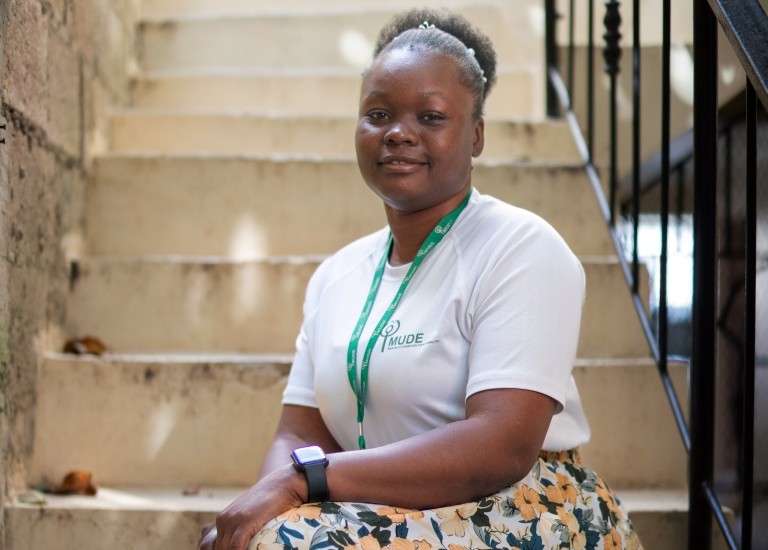Feature
For a case worker in Dominican Republic, serving Haitians affected by HIV is like helping family

Some days, Amancia de León is an educator, providing families with vital information about HIV and how to stay healthy. Some days, de León is a therapist of sorts. If a child is facing abuse at home, or if a teen feels like giving up on their antiretroviral medication, de León offers support and guidance.
Other days, the needs are simpler. She brings food to families that are hungry and hygiene kits to those that can’t afford household supplies. She is also a bridge to other resources; she connects families with services including HIV testing, vocational training, financial support to keep kids in school, transportation to medical appointments, and more.
De León is a community case worker in Dominican Republic with the Building Resilience Among HIV-Affected Families project. Led by Pact and funded by USAID, the project serves Haitian families in DR who are affected by HIV, helping them to meet a range of needs to stay healthy and stop the virus’s spread.
Community case workers like de León are at the heart of the project. Each family that participates in Building Resilience is assigned a community case worker, or CCW, who does whatever they can to lift the family out of vulnerability.
“I don’t see this as a job,” de León says. “For me, it is more like expanding my family. The people that I work with see me as a daughter or a sister, and I see them as family, too.”
A 35-year-old mother of three, de León has been working as a CCW since 2019, first under the Pact-led ACHIEVE project and then with Building Resilience, ACHIEVE’s follow-up effort. Building Resilience serves about 13,000 Haitians across five provinces of DR. De León works in the eastern city of Higuey and serves 20 families with support from the local organization MUDE, a partner in Building Resilience.
Participants usually become connected with Building Resilience at clinics that partner with the project. The next step is connecting them with a CCW. De León begins by conducting a comprehensive assessment of their needs, and then creates a plan to support each family member. With regular follow up, she helps bring the plans to fruition.
“I focus on the most critical needs first,” de León says.

Most of the families she serves have little income, so they rely heavily on her to meet basic needs. She says that even simple support, such as food, can help families to start a transformation. She has helped families facing extreme hardship to regain their health, economic stability and overall wellbeing.
“If I can’t solve a problem, then I speak with my supervisor and consult with other CCWs about how to meet the need,” she says. “My belief is that we should try to help others. I don’t have the means to do it from my own hand, but with this job, I can.”
The biggest challenge faced by families she supports is a lack of legal documentation to be in DR. “Without it, Haitians can only go so far here,” de León says. She notes that children can only attend school to grade six without documentation, and Haitians are denied many other government services. They also live in constant fear of discrimination and deportation.
Although she herself is Haitian, it is a burden that de León does not have to contend with because her parents were able to obtain documents for her when she was young. She recognizes the advantages she has had as a result and says she wishes it could be the same for all of the families she helps.
“Haitian people here have so many barriers.”
De León has served families headed by teenagers, families that have called her in the night desperate for food, and families whose caregivers were gravely ill. She says no one is without hope, but difficult cases can take a toll. Building Resilience has a self-care component for CCWs because the challenges of their job can be so intense.
“It is difficult when you can’t solve every problem,” de León says.
After five years in her role, she says she has learned a lot about HIV, but the most important thing is that the disease is not the real problem – it’s the stigma that surrounds it. HIV can be overcome, she says, once people learn that they can still live a long, healthy life.
The most important thing she tells people, she says, is don’t give up.